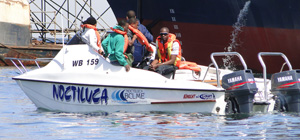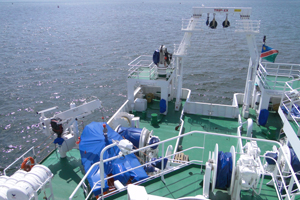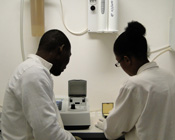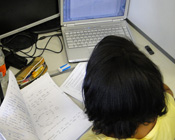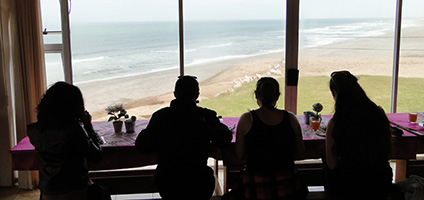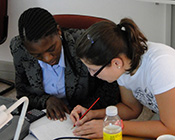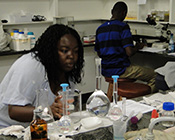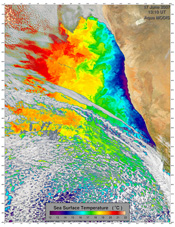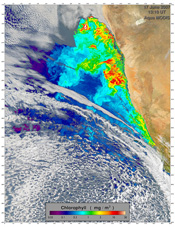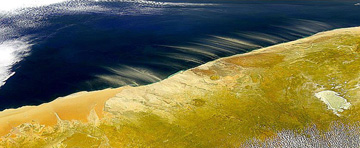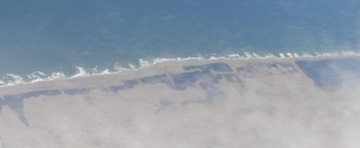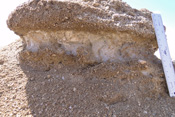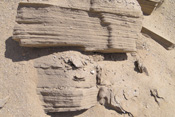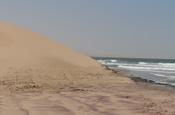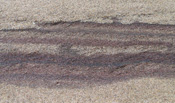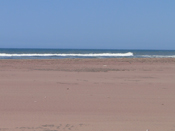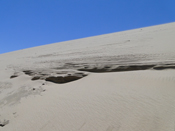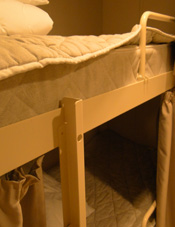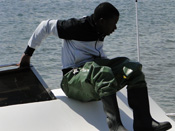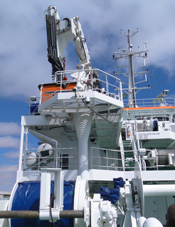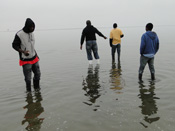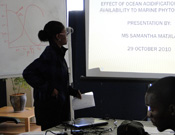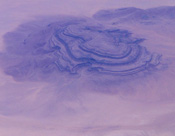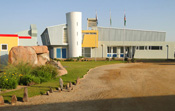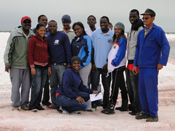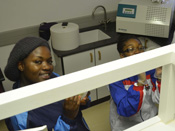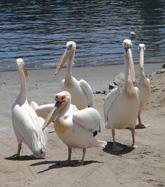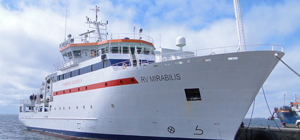| |
|
|
|
|
|
|
|
|
| |
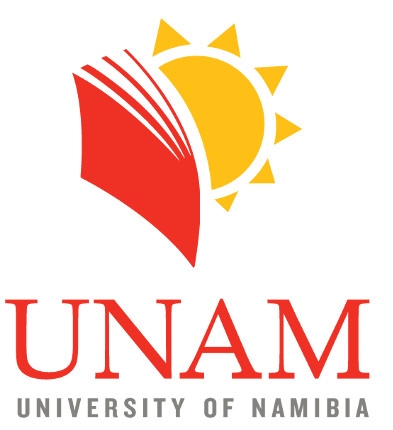 |
RGNO
Regional Research Graduate Network in Oceanography
A SCOR Capacity and Collaboration Building Project in Southern Africa
|
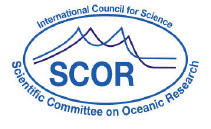 |
|
| |

Goals and Expectations of RGNO Research Discovery Camps
Research workshop for postgraduate students
Active involvement in ongoing research project
Short cruise for sample collection and on-site measurements
Gain research skills
Add to a better understanding of the Benguela Upwelling Ecosystem
Prepare at your home institution for the workshop cruise
Bring with you what is needed to carry out your project
Work in small research teams under the guidance of RGNO instructors
Encourage collaborations with external project partners
Execute crucial steps of your research plan
Perform preliminary experiments and interpret findings on site
Later work with the samples at your home institution
Report in English about accomplishments during and after the workshop
Design research proposal for further studies
Participate in outreach to undergraduate students, science teachers, decision makers and the public
|
|
| |
|
|
|
|
|
|
|
|
| |
About Research Discovery Camps |
Contents | Instructors | Costs | Application | Selection | Deadline | Assessment | RGNO | Past workshops | Sponsors | Poster A4 Poster USL | OLAT |
|
| |
|
|
|
|
|
|
|
|
| |
Downloads
Application Form
Evaluation Form
The Application Process for the 2019 workshop closes on March 10. |
|
6th African Discovery Camp for Research-based Training for the Sustainable Use and Management of Marine Ecosystems and their Resources
April 28 – May 24, 2019
Future research workshops are being planned for April-May 2020 and 2021
at the University of Namibia's Sam Nujoma Marine Research Center in Henties Bay and
Namibia's National Marine Information and Research Center in Swakopmund |
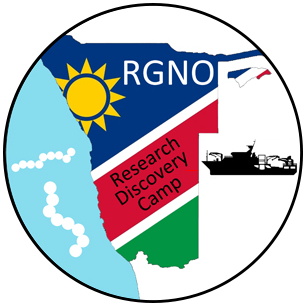 |
|
| |
|
|
|
|
|
|
|
|
| |
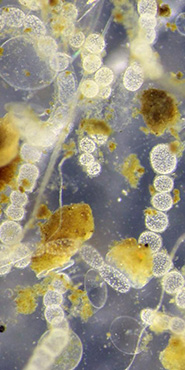
.jpg)
|
|
The research workshops offered within the RGNO program are following a holistic ecosystems approach which makes them attractive for many fields of the environmental sciences. And they offer research-driven, practical learning opportunities in interdisciplinary teams for dedicated scientists and passionate students.
RGNO invites PhD students, postdoctoral researchers, honors MSc students, but also professors and experienced researchers to consider the microbiological and geochemical workshops topics of interest to their own research and to apply for one of RGNO's workshops.
The South-North flowing Benguela Current creates large upwelling cells along the coast of Southwestern Africa. Here, cold, nutrient and CO2-rich upwelling water leads to one of the world's most productive marine ecosystem. The high productivity is the basis for a prosperous fishing industry.
At the same time, degradation of excess biomass leads to rapid oxygen consumption, the formation of oxygen minimum zones (OMZ) in the water column, fully anoxic sediments and at times to massive upwelling of oxygen-depleted water masses containing microbial metabolites like hydrogensulfide that can be toxic to aerobic forms of life.
All Eastern Boundary Upwelling Systems worldwide are projected to undergo major changes in the near future with currently unknown consequences for fisheries and other ecosystem services. Major perturbations today are the steadily increasing atmospheric CO2 concentrations, attendant ocean acidification, rises in the water temperature, sea level rise, changes in ocean circulation, massive nutrient cycling, etc. The exact magnitude of possible changes in upwelling is not well established, but it will likely cause stresses that will affect the Benguela Current Ecosystem's (BCE) productivity, qualitatively and quantitatively. Predicting possible responses of the ecosystems to perturbations requires an intimate knowledge of the physical and geochemical processes involved and the role of the major biological mediator of nutrient cycling and energy transformation, the BCE microbiome.
The BCE is not only a natural laboratory for studies on today's interactions between the geochemical and the microbial systems, how they are linked to food chain productivity and how they are affected by man-made environmental changes and pollution, it is also a model system that might offer explanations for events that occurred earlier in Earth history. Examples are mass extinction and Oceanic Anoxic Events (OAE), formation of sedimentary phosphate deposits, how organisms responded to past alkalinity changes (Ocean Acidification), how sediments act today as sinks for inorganic and organic pollutants, and for sequestering excess atospheric carbon and elements from land-runoff and how they archived former processes which took place on land and along continental shelves.
|
|
|
| |
If you are interested in learning more about the BCE and would like to join the Regional Research Graduate Network in Oceanography for Southern Africa in Namibia for a practical research period of a few weeks, this Research Discovery Camp might be the right start for you. Applicants are expected to be open-minded, have a good background in the natural sciences, be creative in developing new ways for studying environmental questions, be experienced and willing to work in small groups at sea and in the laboratory on land and to read, write and communicate in English comfortably. You are expected to be actively involved in carrying out environmentally oriented research at your home institution before and after the workshop. The RGNO supports your research ideas with work at sea, lectures, literature studies, problem-solving challenges and hands-on training opportunities.
RGNO workshops also offer opportunities to enlarge your scientific network and to arrange for short internships in the laboratory of one of the RGNO instructors. |
|
| |
|
|
|
|
|
|
|
|
| |
|
|
|
|
|
|
|
|
| |
After successful pilot workshops since 2014 and thanks to the continued support of our sponsors, we are pleased to announce a second series of international research training workshops in southern Africa to take place annually between 2018 and 2021. Participation is limited to 14.
Workshop participants will learn about microbial and geochemical oceanography, in particular about ways in which microbes participate in geochemical cycles in marine upwelling ecosystems and how chemical, physical and atmospheric processes in turn influence microbial physiology. Among many other things, the famous Thiomargarita spp., the largest bacteria found on Earth, so far, and other benthic and pelagic microbes of the sulfur, nitrogen and carbon transformation cycles and microbenthos from various sediment habitats will be collected and studied. During two one day cruises on Namibia's R/V MIRABILIS and together with scientists from the National Marine Information and Research Center (Nat MIRC), we will perform in situ measurements and collect samples for later work in the laboratory on land. |
|
Before embarking on the cruises students will formulate the research plan, organize sample collection, practise techniques and design experiments in the laboratories of UNAM's Sam Nujoma Campus in Henties Bay and of Nat MIRC in Swakopmund.
During lectures and discussions students will also learn about benthic and pelagic habitats of the BCE and the complex relationships between the microbiome, geochemical cycles and ecosystem health, which ultimately influences the productivity and the harvestable fish yield of the BCE. The interdisciplinary approach merges microbial, geochemical and food web oceanography into comprehensive views about upwelling ecosystems. The research results will support decisions about sustainable ecosystem management based on an in-depth understanding of environmental changes, natural variability and recovery from disturbances in the BCE.
We'd like to invite you to study the workshop description and the conditions given below and to send in your application before March 10, 2019. If your application is complete, you will hear back from the organizers within 10 days after the application deadline. |
|
| |
|
|
|
|
| |
|
|
|
|
|
|
|
|
|
|
|
| |
Application Forms  |
|
REGIONAL RESEARCH GRADUATE NETWORK IN OCEANOGRAPHY - RGNO |
|
| |
|
|
offered by UNAM's Sam Nujoma Campus and Namibia's National Marine Information and Research Center (Nat MIRC) |
|
| |

Workshop Details |
|
|
| |
|
|
|
|
|
|
|
|
| |
Research Discovery Camps |
|
|
|
|
|
|
|
| |
|
|
|
|
|
| |
What you will learn |
|
|
|
|
| |
|
|
|
|
|
| |
Purpose and Scope |
|
|
|
|
| |
|
|
|
|
|
| |
Workshop Structure |
|
|
|
|
| |
|
|
|
|
|
| |
Time Plan |
|
|
|
|
| |
|
|
|
|
|
| |
Workshop Contents |
|
|
|
|
| |
|
|
|
|
|
|
|
|
| |
Introductory Symposium |
|
|
|
|
|
|
|
| |
|
|
Search where the RV MIRABILIS presently is
|
|
|
|
|
|
| |
Alumni + Student Forum |
|
|
|
|
| |
|
|
|
|
|
| |
Highlights Symposium |
|
|
|
|
| |
|
|
|
|
|
| |
Results Forum |
|
|
|
|
| |
|
|
|
|
|
| |
Organizers |
|
|
|
|
| |
|
|
|
|
|
| |
Instructors |
|
|
|
|
| |
|
|
|
|
|
| |
Speakers |
|
|
|
|
| |
|
|
|
|
|
| |
Technical Assistants |
|
|
|
|
| |
|
|
|
|
|
|
|
|
| |
Workshop Coordinator |
|
|
|
|
|
|
|
| |
|
|
|
|
|
|
|
|
| |
Location |
|
|
|
|
|
|
|
| |
|
|
|
|
|
|
|
|
| |
Language |
|
|
|
|
| |
|
|
|
|
|
| |
Costs |
|
|
|
|
| |
|
|
|
|
|
| |
Financial Support |
|
|
|
|
| |
|
|
|
|
|
| |
Who is eligible to apply |
|
|
|
|
| |
|
|
|
|
|
| |
How to apply |
|
|
|
|
| |
|
|
|
|
|
|
|
|
| |
Selection of Participants |
|
|
|
|
|
|
|
| |
|
|
A lot of work has been carried out in the BCE by scientists from the region and from abroad. Regional Graduate Networks in Oceanography (RGNO) intend to summarize what is known, to apply this knowledge towards understanding what changes to expect and to define research needs for the future. We would like to invite talented students and established scientists from all over the world to share their interests and knowledge with each other, to initiate innovative research projects and thus contribute to the training of a next generation of ocean scientists in Africa and the sustainable management of Benguela Current ocean ecosystems.
|
|
With the work carried out during RGNO Research Camps we address questions of regional and global importance and of relevance for society, e.g. causes of variability of bioproductivity, stability of current-induced upwelling during past and future global changes and sea level variations, consequences of trawling and mining at the sea bottom and prospecting for marine biotechnology, to name just a few. The goals of the African RGNO are summarized in the original RGNO Mission Statement I for the period 2013 - 2017 and in the extended RGNO Mission Statement II for the period 2018 - 2021 |
|
| |
Travel to Namibia |
|
|
|
| |
|
|
|
|
| |
Expectations |
|
|
|
| |
|
|
|
|
| |
Assessment |
|
|
|
| |
|
|
|
|
| |
Study Sites |
|
|
|
| |
|
|
|
|
| |
Important Dates |
|
|
|
|
| |
|
|
|
|
|
| |
Impressions from Past Workshops, Testimonials and Reports |
|
|
|
|
|
|
|
| |
|
|
|
|
|
| |
Regional Graduate Network
in Oceanography - RGNO |
|
|
|
|
| |
|
|
|
|
|
| |
Other Things to do in Namibia |
|
|
|
|
| |
|
|
|
|
|
| |
Marine Education Outreach - MEEO |
|
|
|
|
| |
|
|
|
|
|
| |
Sponsors |
|
|
|
|
|
|
|
| |
|
|
|
|
|
|
|
|
| |
Slide show |
|
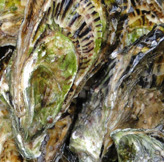
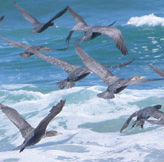 |
|
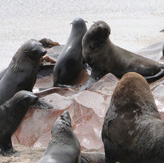 |
|
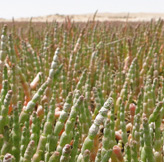 |
|
| |
|
|
|
|
|
| |
 |
|
|
|
|
| |
|
|
|
|
|
|
|
|
| |
|
|
|
|
|
|
|
|
| |
|
|
|
|
|
|
|
|
| |
Research Discovery Camps
︎  |
|
RGNO Research Discovery Camps offer training workshops on specialized oceanographic topics and to inspire participants to advance scientific research in ocean ecosystems in an exploratory way. Hands-on work on a research vessel at sea, instruction in the classroom and work in the laboratory make RGNO Research Discovery Camps unique experiences. By working across disciplinary fields and initiating partnerships with scientists from internationally leading research institutions, the RGNO offers opportunities to collaborate in interdisciplinary research projects with guidance and supervision by active scientists. Although the Research Discovery Camps in Namibia address questions relevant to the Benguela Current Ecosystem (BCE) and the consequences of global changes and local disturbances for its functioning, it also provides opportunities to enhance understanding of marine ecosystems in general and how other upwelling systems might respond to perturbations.
Participation in RGNO Research Discovery Camps is competitive; students get selected based on their unique approaches to ocean research and how participation will enhance their ongoing work and their career opportunities as ocean scientists. |
|
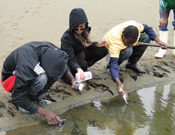
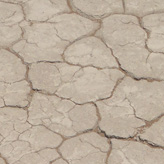
|
|
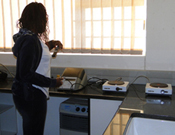
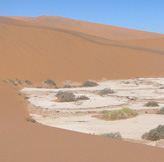
|
|
| |
|
|
|
|
|
|
|
|
| |
|
|
|
|
|
|
|
|
| |
What you will learn
︎  |
|
During the Discovery Camp we will observe conditions in the BCE, ask ourselves why things are the way we observe them, carry out experiments that will allow us to understand how the ecosystem functions and consider consequences of environmental changes. Participants will learn about current research and develop future research directions. It is anticipated that you are or will get involved in marine scientific research and be willing to attend internships for analyses and interpretation of research data in your home country or abroad after the camp, if appropriate and necessary. |
|
The acquired knowledge should encourage participants to investigate ecological questions related to ocean productivity, to integrate it into assessing and implementing sustainable strategies for activities related to prospecting, exploration of the living and mineral resource in the ocean and provide scientific and technical expertise on the careful exploitation and protection of the marine environment.
|
|
| |
|
|
|
|
|
|
|
|
| |
|
|
|
|
|
|
|
|
| |
Purpose and Scope
︎  |
|
In the upcoming Discovery Camp participants are asked to define open questions and formulate research projects that cover a range of topics related to marine biogeochemistry and microbial benthic and pelagic ecosystem research, including human-induced changes that affect biogeochemical processes in the ocean.
In particular, Discovery Camps in the BCE aim to fulfill the following goals: |
|
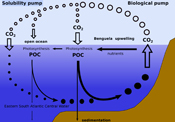 |
|
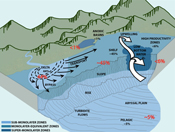 |
|
| |
|
|
encourage advanced students and young professionals to participate in an interdisciplinary ocean research program that aims at understanding how upwelling ecosystems function, at identifying upcoming problems and by working towards their solutions, |
|
|
|
| |
|
|
provide opportunities for innovative research-oriented learning about microbial and chemical oceanography, |
|
|
|
| |
|
|
foster a comprehensive understanding of biogeochemical processes in the BCE, |
|
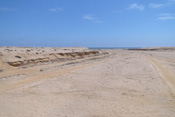 |
|
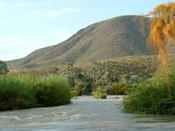 |
|
| |
|
|
define key processes that affect the continental margins, including coastal systems, estuaries, shelf areas and river delta systems and exchanges between them, |
|
|
|
| |
|
|
examine biogeochemical processes in the BCE and their relation to marine ecosystem structure and fisheries resources, |
|
|
|
| |
|
|
identify biological, physical and chemical drivers of energy and material transformations and fluxes, |
|
|
|
| |
|
|
study nutrient cycling, productivity, food web efficiencies and carbon sequestration by biological and chemical processes, sedimentation and burial of organic matter, |
|
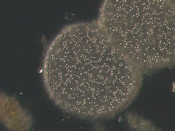 |
|
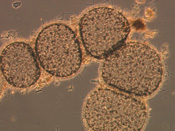 |
|
| |
|
|
investigate the dynamics of biological, geochemical and physical pump processes over the Benguela continental margin, |
|
|
|
| |
|
|
integrate data into models that will assess the past, present and future biogeochemical status of the BCE, |
|
|
|
| |
|
|
develop ideas for a regional ocean observatory system and |
|
|
|
| |
|
|
extend insights and solutions of problems to students of natural sciences and to those who care about sustainably managing and protecting marine habitats and their natural resources. |
|
|
|
| |
|
|
|
|
|
|
| |
|
|
|
|
|
|
|
|
| |
|
|
| |
|
|
|
|
|
|
|
|
| |
|
|
|
|
|
|
|
|
| |
Workshop Structure
︎  |
|
The RGNO Discovery Camps intend to assemble the wealth of scientific information that has accumulated over many years of research in the BCE. In an interdisciplinary workshop we can fulfill this goal best by bringing together experts from the region and from all over the world to train the next generation of geochemically, biophysically and microbiologically oriented oceanographers. |
|
| |
|
|
The workshops offer a mix of research themes presented as workshops and talks by experts, lectures with tutorials and the students' own efforts: paper presentations, experimental design, practical field and laboratory work, writing research proposals and designing posters of their own work during the RGNO.
Participants will be introduced to topics from the research front in microbial, physical and geochemical oceanography and thus learn how to apply their knowledge in chemistry, geology, physics and biology to a truely ecological understanding of the unique features of the BCE.
Interdisciplinary Approach
By bringing ocean physicists and geochemists together with microbiologists and trophic ecologists, we would like to create a holistic understanding of
how basic physical, chemical and biological processes regulate the BCE,
how the living conditions in the BCE fluctuate naturally and
how the BCE might respond to changes. |
|
Participating research groups study
physical mixing processes on the kilometer scale,
spacial and temporal geochemical conditions in redox gradients,
stress responses in plankton populations,
organic carbon transfer and element fluxes,
effects of elevated atmospheric CO2 levels on ocean habitat conditions,
symbiotic interactions between microbial communities and benthic fauna,
metabolic potential of microorganisms associated with marine aggregates and
interactions between viruses and their hosts at the scale of molecules.
All studies will contribute to a better understanding of the functioning and responses to disturbances of the unique trophic web in the BCE that supports such large populations of fish and the efforts to define fishing quotas to sustain these and other ecosystem services. |
|
| |
|
|
| |
|
|
The workshop will comprise |
|
|
|
|
|
| |
|
|
Field Experiences at sea in the BCE on the R/V MIRABILIS, in tidal estuaries and along coastlines and riverbeds. |
|
|
|
|
|
| |
|
|
Lectures, Tutorials and Exercises at sea and on land covering workshop topics as outlined under Purpose and Scope and Workshop Contents. |
|
|
|
| |
|
|
Guided Research Work in the laboratory. |
|
|
|
| |
|
|
Colloquia and student-guided activities. |
|
|
|
| |
|
|
An Open-Symposia with key lectures by invited speakers at the begining of the workshop on everything you want to know about the Benguela Upwelling System. Presentations of student's research findings at the end of the workshop. |
|
|
|
| |
|
|
A Student-Forum with presentations by former and present workshop participants about their research fields. |
|
|
|
| |
|
|
Discussion of scientific papers and case studies on particular workshop subjects, methods and concepts. |
|
|
|
| |
|
|
Exercises offering hands-on introductions to bioinformatics, data processing and presentation, computer aided geochemical speciation and thermodynamics of biochemical processes in microbial metabolism, basics in bioinformatics. |
|
|
|
| |
|
|
Special Topics suggested by participants who wish to discuss their particular needs.
Advanced participants are invited to contribute their expertise to the learners. |
|
|
|
| |
|
|
Excursions to a Desalination Plant, a Salt Factory, an Oyster Hatchery and Oyster Farm or a Fish Processing Plant illustrate practical and economic aspects of geochemistry and biology that are directly linked to ocean sciences. |
|
| |
|
|
|
|
|
|
|
|
| |
|
|
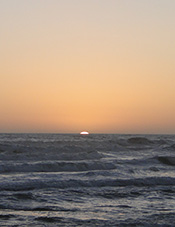 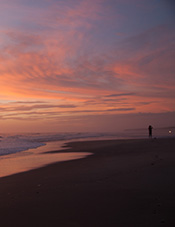 |
|
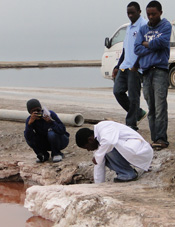 |
|
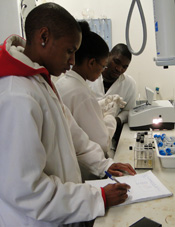 |
|
| |
|
|
|
|
|
|
|
|
| |
|
|
|
|
|
|
|
|
| |
Time Plan
︎  |
The daily workshop work on land normally starts early in the morning with tutorials, lectures and exercises; it continues in the afternoon with research work and experiments, and it might last until late at night with discussions and student-guided research activities. At sea there is a 24 hr schedule with work shifts, if the cruise takes more than one day. This demands flexibility and sometimes there is little time to sleep.
Overall Workshop Schedule (left) and daily Workplan (right): (click on picture to enlarge programs)
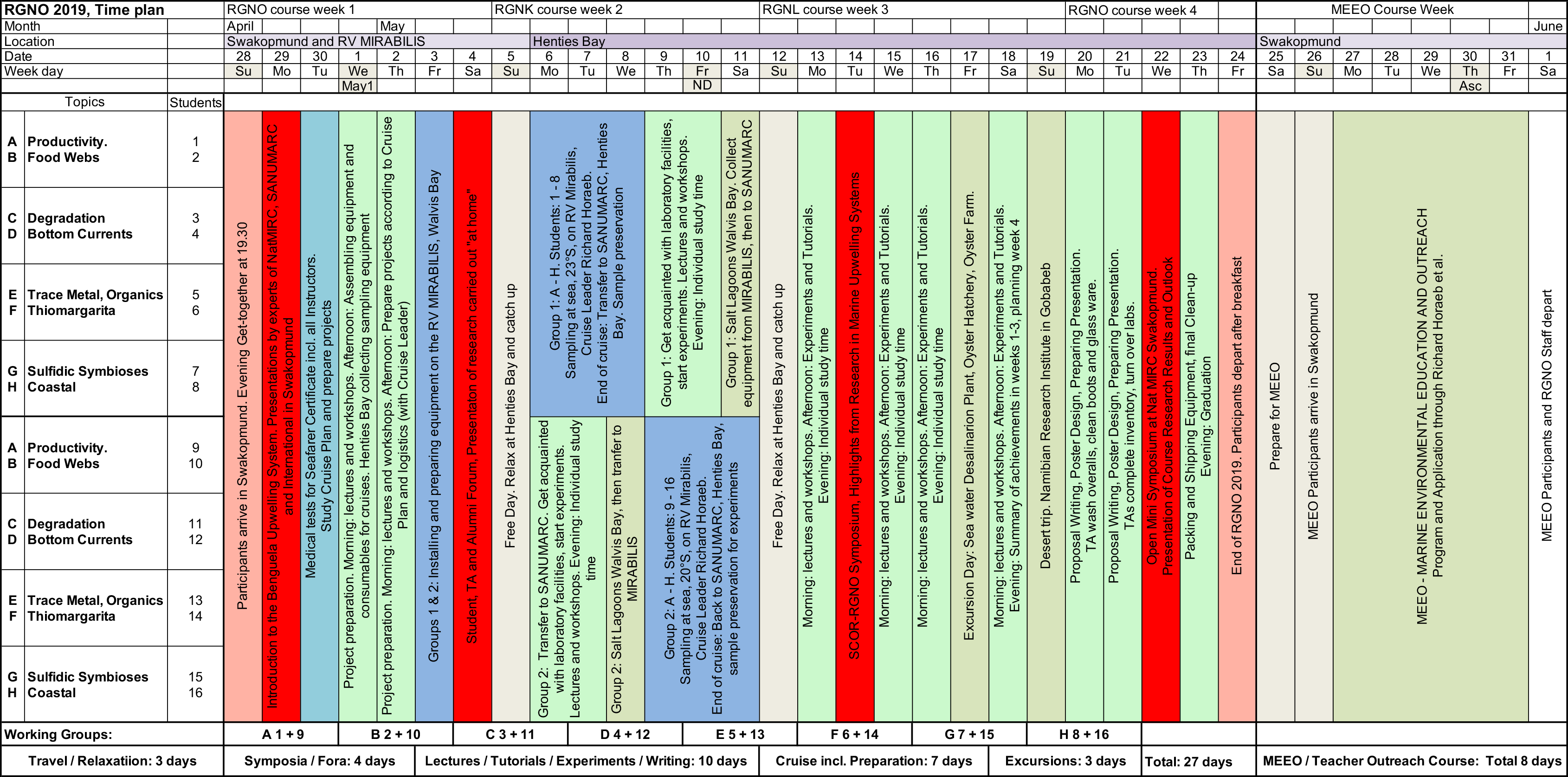 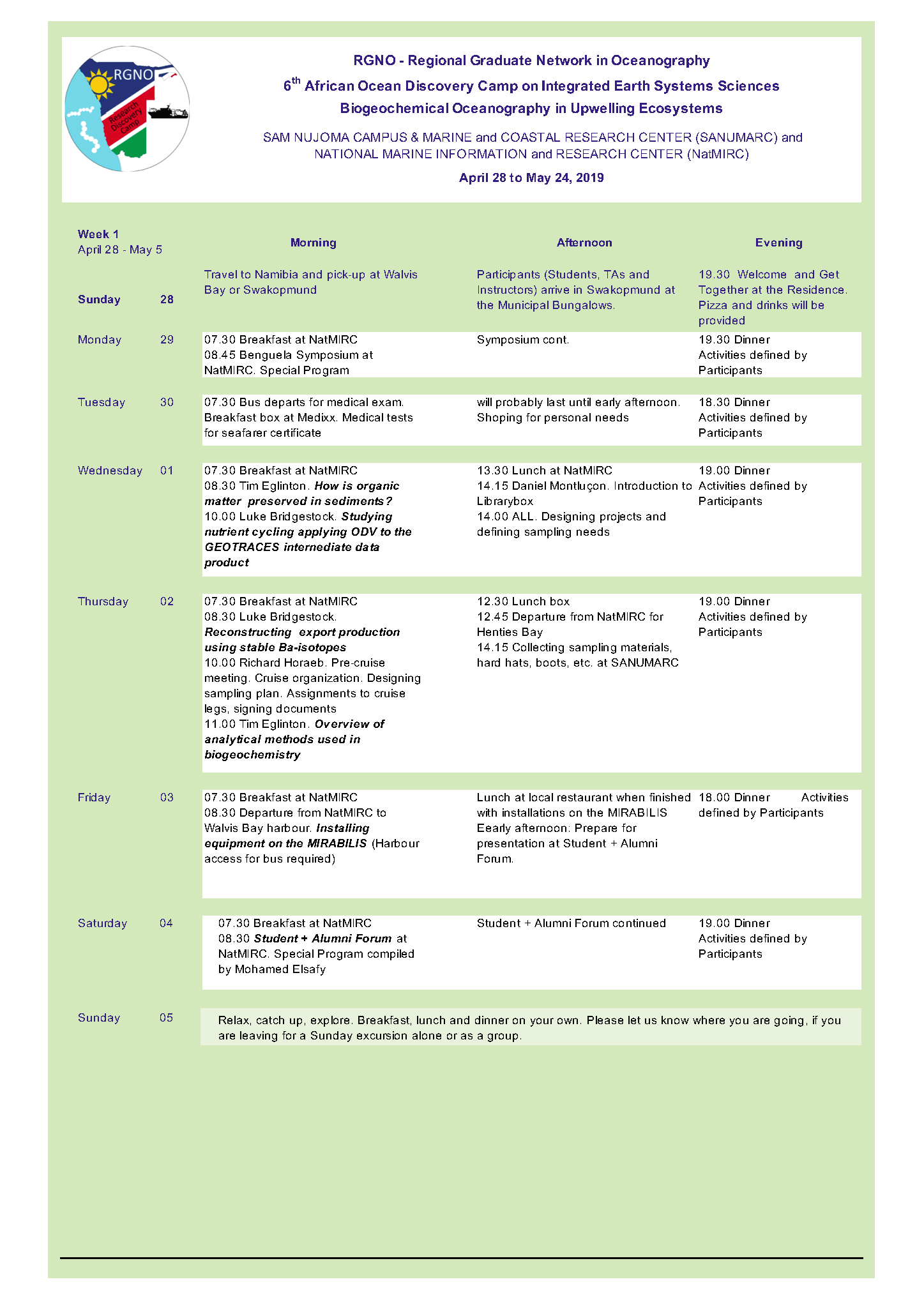
Updated schedules become available as the ongoing workshop develops.
|
|
| |
|
|
| |
|
|
|
|
|
|
|
|
| |
|
|
|
|
|
|
|
|
| |
Workshop Contents
︎  |
|
Research and learning focus on a better understanding of microbially mediated biogeochemical processes in the BCE. Observations at sea are combined with experiments, modelling, and theory. Expert instructors will address and illustrate a selection of topics in lectures, workshops and exercises. Selection depends on the expertise of the instructors who will be available during the workshop. Examples from past workshops are ... |
|
| |
|
|
|
|
|
|
| |
|
|
Ocean Systems Studies:
Physical and chemical characteristics of the Benguela Current Ecosystem and drivers of upwelling. |
|
|
| |
|
|
Ocean-atmosphere interactions: Conversion of dissolved into volatile N and S compounds in oxygen minimum zones (OMZ). |
|
|
| |
|
|
Specialties of desert-ocean interactions: Supply and distribution of terrestrial weathering materials, aerosols, dust, plant material, pollutants and microorganisms to the ocean by aeolian and, along the two boarder rivers, by fluvial transports. |
|
|
| |
|
|
Seasonal and environmental variability: Application of satellite-based observation platforms and in situ verification of marine habitat conditions and responses. Remotely flown instruments, their characteristics and resolution. Measurements in the IR, VIS, microwave and multispectral ranges. Quality of measurements. Repositories for and access to global ocean data.
|
|
|
| |
|
|
Sedimentary organic & inorganic Biogeochemistry |
|
|
|
|
|
| |
|
|
How sedimentary processes impact chemical conditions and the nutritional status in the water column and vice versa. |
|
|
|
| |
|
|
Biomarkers for the reconstruction of the origin of organic and inorganic compounds in sediments. |
|
|
| |
|
|
Proxies to follow past changes in upwelling and depositional processes. |
|
|
| |
|
|
Element balancing across the continental shelf (Carbon in particular): Sources, sinks and movement of organic matter from land and estuaries across the coastal margin to the deep ocean and its transformation and persistence in sedimentary deposits. Association of organics with minerals and ionic solutes. |
|
|
| |
|
|
|
|
|
|
|
|
| |
|
|
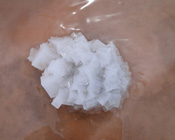 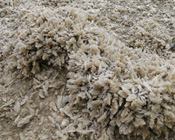 |
|
|
|
|
|
| |
|
|
|
|
|
| |
|
|
|
|
|
| |
|
|
|
|
|
| |
|
|
|
|
|
| |
|
|
|
|
|
| |
|
|
|
|
|
| |
|
|
|
|
|
| |
|
|
|
|
|
| |
|
|
|
|
|
| |
|
|
|
|
|
| |
|
|
|
|
|
| |
|
|
|
|
|
| |
|
|
|
|
|
|
|
|
| |
|
|
The Benguela Microbiome and its Interaction with geochemical Cycles |
|
|
|
|
|
| |
|
|
Productivity comparison with other nutrient-rich and nutrient-poor marine systems: Black Sea, Baltic Sea, Mediterranean Sea, South Pacific Gyre, Sargasso Sea. |
|
|
|
| |
|
|
Ecophysiology of planktonic and benthic microorganisms: Microbial life strategies, energy fluxes, productivity, carbon and nutrient assimilation and dissimilation. |
|
|
|
| |
|
|
Linking microbial community diversity and metabolism to biogeochemical functions. |
|
|
|
| |
|
|
Microbial ecophysiology: Microbial life strategies and regulation of biogeochemical processes, energy fluxes, productivity, carbon and nutrient assimilation and dissimilation.
|
|
|
|
| |
|
|
|
|
|
|
| |
|
|
Regulation of biogeochemical sink processes, e.g. phosphate bioaccumulation and the formation of phosphorus containing mineral deposits (phosphorites).
|
|
|
|
| |
|
|
Environmental genomics: How genomics and genetic approaches can be applied to understanding marine biogeochemical processes. The role of specific genes and enzymes in ecosystem networks. |
|
|
|
| |
|
|
Diversity, morphological characteristics, taxonomy, selection and biochemical functions of major planktonic and benthic microorganisms, "from nematodes to viruses" |
|
|
|
|
|
| |
|
|
|
|
|
|
|
|
| |
|
|
Geochemical Cycling as Habitat Drivers |
|
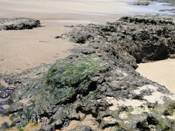 |
|
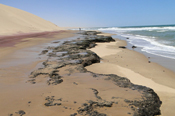 |
|
| |
|
|
Description of the biogeochemical cycles of N, P, S, Fe, Si, C, and O. Stoichiometries and rates of major redox processes (N, S, C, O, Fe, ..) at redox-clines. Acid-base equilibria (carbonate-carbonic-acid-silica systems), effects on ocean buffering, acidification and biomineral solubility. Nutrient availability and microbial control (P, Si). |
|
|
|
| |
|
|
Comparison of N- and S-transformation processes involving organic and inorganic compounds in redox-clines of the BCE and other Eastern Boundary Upwelling Systems: e.g. Humboldt and California Current Systems. |
|
|
|
| |
|
|
Mixing processes across benthic lutoclines (fluidic sediment-water interfaces). |
|
|
|
| |
|
|
|
|
|
|
|
|
| |
|
|
Low Oxygen Environments |
|
|
|
|
|
| |
|
|
Relations between rapid nutrient cycling, productivity, degradation and oxygen depletion. |
|
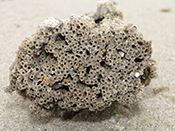 |
|
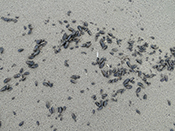 |
|
| |
|
|
How the use of alternate electron acceptors (e.g. NO3-, MnO2, Fe(OH)3, SO42-, CO2) is changing the balance of chemical elements in anoxic environments. |
|
|
|
| |
|
|
Sources and sinks of climatically active metabolic gases such as CO2, N2O, CH4, DMSO, halogenated compounds.
|
|
|
|
| |
|
|
The role of Archaea and Bacteria of the anaerobic microbiome in denitrification, nitrification, methanotrophy, methanogenesis,. sulfidogenesis, etc. |
|
|
|
| |
|
|
Coastal vs. off-shore marine OMZ ecosystems. |
|
|
|
| |
|
|
Sensitivity, resistance, resilience and recovery of oxygen-limited food webs. |
|
|
|
| |
|
|
Low oxygen environments in the context of global environmental changes in the past and in the future. |
|
|
|
| |
|
|
|
|
|
|
|
|
| |
|
|
Geobiochemical Modeling |
|
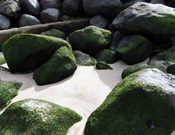 |
|
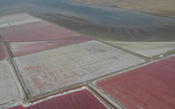 |
|
| |
|
|
Access to and working with data from local data bases and with ARGO and GEOTRACES data that are available in global ocean databases. |
|
|
|
| |
|
|
Thermodynamic and kinetic nutrient cycling models. Sources and reliability of numerical data for chemical speciation, concentrations, fluxes and conversion rates.
Horizontal and vertical mixing in shelf areas.
|
|
|
|
| |
|
|
Development of a Regional Oceanic Modeling System including a lower trophic ecosystem model with phytoplankton and zooplankton functional groups, detrital and dissolved organic matter components (POM, DOM) and their conversion by microorganisms. |
|
|
|
| |
|
|
Flux balance analysis models. Reconstruction of past and present changes. Predictions of possible alterations, rates of changes in a perturbed world and risks associated with them. |
|
|
|
| |
|
|
Studying aspects of the Global Ocean Microbiome applying bioinformatics tools for the analysis of TARA Ocean data.
|
|
|
|
| |
|
|
|
|
|
|
|
|
| |
|
|
Academic Skills |
|
|
|
|
|
| |
|
|
Access to new research findings (scientific literature), knowledge sharing, presenting, collaborating in project development and management, locating, reading and evaluating scientific information, output evaluation and writing competitive grant proposals. |
|
|
|
| |
|
|
|
|
|
|
| |
|
|
While working at sea, in the field and in the laboratory
participants will be introduced to ... |
|
|
|
| |
|
|
collaborating in small teams on the R/V MIRABILIS, designing sampling schemes, learning about proper sample collection and preservation and performing simple analyses on board and in the laboratory on land. |
|
|
|
| |
|
|
investigating the ecology and diversity of marine microbes involved in geochemical cycling of macro-nutrients and micro-elements. |
|
|
|
| |
|
|
extracting pigments and metabolites from bloom forming microorganisms and separating and detecting them with HPLC. |
|
|
|
| |
|
|
analyzing organic and inorganic components from seawater and sediments. |
|
|
|
| |
|
|
applying molecular biomarkers (membrane lipids, stable isotopes) in food web ecology and the reconstruction of past environmental conditions.
|
|
|
|
| |
|
|
performing biogeochemical experiments and enriching and growing marine microorganisms.
|
|
|
|
| |
|
|
designing and executing mathematical models on nutrient flows in upwelling systems.
|
|
|
|
| |
|
|
|
|
|
|
| |
|
|
|
|
|
|
| |
|
|
The basic workshop research plan is defined as listed in the RGNO Mission Statement II. There is room for integrating unique ideas and aspects that are relevant to the participants' own research, if they can be realized within one of the prepared core project topics. Sub-projects must be prepared well in advance. |
|
| |
|
|
|
|
|
|
|
|
| |
|
|
| |
|
|
|
|
|
|
|
|
| |
Introductory Symposium
︎  |
|
RGNO - Introductory Symposium
Scientific Knowledge applied to the Sustainable Use of Coastal Upwelling Ecosystems
What we know about the Benguela Upwelling Ecosystem
|
|
| |
|
|
|
|
|
|
|
|
| |
|
|
Monday, April 29, at Nat MIRC in Swakopmund
- organized by RIchard Horaeb
|
|
| |
|
|
|
|
|
|
|
|
| |
|
|
A one-day open forum with presentations and discussions by experts from the region and visiting scientists familiar with the BCE
|
|
| |
|
|
|
|
|
|
|
|
| |
|
|
While anthropogenic effects due to overfishing, pollution, ship traffic and building of structures for exploration (oil drilling platforms, mineral mining at the ocean floor, wind farms, harbor construction etc.) can be managed by following best environmental practices, those due to short- and long-term, regional and global changes, like sea level rise, sea surface warming, ocean acidification and trophication or salinity changes, cannot. The one-day symposium will assemble international and regional scientists and research students from complementary disciplines, government regulators, policy advisors and decision makers concerned with the BCE, representatives from regional fisheries organizations and the shellfish farming and aquaculture industry, educators and other stakeholders who are interested in stimulating dialog and exchanging knowledge, experience and ideas about
|
|
| |
|
|
present and future problems and challenges in coastal upwelling systems
|
|
|
|
| |
|
|
climate change effects on nutrient cycling and productivity
|
|
|
| |
|
|
designing proper approaches for studying them and for finding solutions
|
|
|
| |
|
|
developing methods for an observation system |
|
|
| |
|
|
communicating research findings to decision makers and ecosystem managers |
|
|
| |
|
|
defining long-term benefits for the region and for individual stakeholders
|
|
|
| |
|
|
training next generation ocean scientists
|
|
|
| |
|
|
|
|
|
|
|
| |
|
|
Detailed Program:
By clicking on the green arrow, you can have a look at the program of the most recent RGNO Introductory Symposium
 |
|
|
| |
|
|
|
|
|
|
|
| |
|
|
| |
Alumni + Student Forum
︎  |
|
RGNO - Experience and Knowledge Sharing Day
Alumni and Participants of the ongoing RGNO workshop exchange Ideas about their Research Experiences
|
|
| |
|
|
|
|
|
|
|
|
| |
|
|
Saturday, May 4, at Nat MIRC in Swakopmund - organized by Mohamed Elsafi
|
|
| |
|
|
|
|
|
|
|
|
| |
|
|
A one-day forum with presentations by participants of the ongoing Research Discovery Camp and RGNO Alumni
about the research they are presently involved in and about their career paths
|
|
| |
|
|
|
|
|
|
|
|
| |
|
|
Every year a number of former participants are invited to address the students of the ongoing RGNO workshop with a short presentation of 15 minutes on a topic in which they have developed their expertise since they took the RGNO workshop themselves.
Local Alumni are invited to join the workshop for a weekend and deliver their presentation in person. Alumni from abroad record it and either upload it as a video to a world-wide-web platform which can be accessed in Namibia or they send the recorded presentation to be included in the RGNO program as appropriate.
|
|
| |
|
|
Detailed Program:
By clicking on the green arrow, you can have a look at the program of the most recent Alumni + Student forum
 |
|
| |
|
|
|
|
|
|
|
|
| |
|
|
| |
Ocean Research Highlights Symposium
︎  |
|
RGNO - Ocean Research Highlights Symposium
Invited Speakers and Instructors present their views about trends in research and exploration in Ocean sciences
|
|
| |
|
|
|
|
|
|
|
|
| |
|
|
Tuesday, May 14, at SANUMARC in Henties Bay - organized by Kaukurauee Ismael
Kangueehi
|
|
| |
|
|
|
|
|
|
|
|
| |
|
|
A one-day symposium with presentations by invited speakers and instructors of the ongoing RGNO Research Discovery Camp
about new topics and research trends in ocean sciences
|
|
| |
|
|
|
|
|
|
|
|
| |
|
|
For this one-day symposium RGNO invites local and international ocean scientists to present their views about recent ground-breaking discoveries and about trends in ocean resesearch, about planned missions, international programs, funding opportunities, newly established databases as well as technical developments for ocean observation.
|
|
| |
|
|
Detailed Program:
By clicking on the green arrow, you can have a look at the program of the most recent Ocean Research Highlights Symposium
 |
|
| |
|
|
|
|
|
|
|
|
| |
|
|
| |
|
|
|
|
|
|
|
|
| |
Results Forum
︎  |
|
RGNO - Experience and Knowledge Gained during the Workshop
Participants of the ongoing RGNO workshop present their Research Results
|
|
| |
|
|
|
|
|
|
|
|
| |
|
|
Wednesday, May 22, at Nat MIRC in Swakopmund
- organized by Elena Bruni
|
|
| |
|
|
|
|
|
|
|
|
| |
|
|
A one-day forum with presentations of the results by participants of the ongoing Research Discovery Camp
|
|
| |
|
|
|
|
|
|
|
|
| |
|
|
At the end of every workshop participants present the results in a 15 minute illustrated talk and give insight into their project. How far did we get, what needs to be done next?
|
|
| |
|
|
Detailed Program:
By clicking on the green arrow, you can have a look at the program of the most recent Results Forum
 |
|
| |
|
|
|
|
|
|
|
|
| |
|
|
| |
|
|
|
|
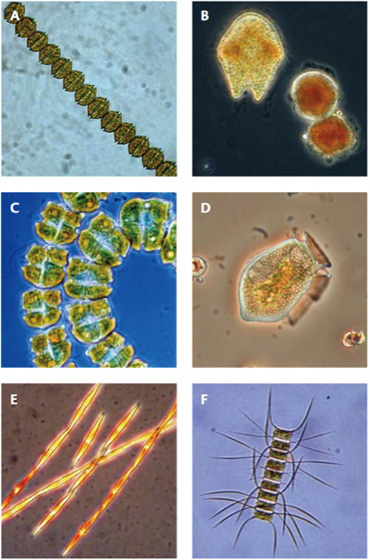 |
|
| |
|
|
|
|
|
| |
Organizing Team
|
|
Chibo Chikwililwa
Coordinating Director (CD) and Workshop Project Leader
e-mail: Chibo Chikwililwa
Sam Nujoma Campus and Marine and Coastal Resources Research Center (SANUMARC), University of Namibia
|
|
|
| |
︎  |
|
Kurt Hanselmann,
Project Instructor and Research Coordinator
e-mail Kurt Hanselmann
Dept. of Earth Sciences, BioGeoScience Group, ETH Zurich, Switzerland
|
|
|
| |
|
|
Richard Horaeb,
Project Instructor, Cruise Leader and MEEO Organizer
e-mail Richard.Horaeb
Nat MIRC of MFMR, Swakopmund
|
|
|
| |
|
|
Deon Louw
Project Instructor and Cruise Leader
e-mail Deon Louw
Nat MIRC of MFMR, Swakopmund |
|
|
| |
|
|
|
|
|
| |
Instructors,
Tutors
︎  |
|
We'd like to engage instructors and junior instructors, permanent and visiting ones, biologists, chemists, physists, modelers, remote sensing specialists and geologists, from the region and from abroad, who have an active research interest in marine high productivity systems and redox transition processes and who are willing to share their knowledge, commit for a productive period of time and guide young scientists.
|
|
|
| |
|
|
|
|
|
| |
|
|
Names will be added to the list as people become available and commit to contribute |
|
|
| |
|
|
Jake Bailey, Geobioloogy, Dept. of Earth Sciences, University of Minnesota, Minneapolis, MN, USA |
|
|
| |
|
|
Chibo Chikwililwa, SANUMARC of UNAM, Henties Bay, NAMIBIA |
|
|
| |
|
|
Anja Kreiner, Coastal Studies Section, Nat MIRC of MFMR, Swakopmund, NAMIBIA |
|
|
| |
|
|
Kurt Hanselmann, Microbial Geochemistry, Geological Institute, Biogeosciences and Geomicrobiology, ETHZ, Zürich, SWITZERLAND |
|
|
| |
|
|
Richard Horaeb, Zooplankton Section, Nat MIRC of MFMR, Swakopmund, NAMIBIA |
|
|
| |
|
|
Timothy Eglinton, ETH Zurich, D-ERDW, Biogeosciences, SWITZERLAND |
|
|
| |
|
|
Volker Mohrholz, Physical Oceanography, Leibniz Institute for Baltic Sea Research Warnemünde, GERMANY |
|
|
| |
|
|
Daniel Montluçon, ETH Zurich, D-ERDW, Biogeosciences, SWITZERLAND |
|
|
| |
|
|
Deon Louw, Cruise Leader, Phytoplankton Section, Nat MIRC of MFMR, Swakopmund, NAMIBIA |
|
|
| |
|
|
|
|
|
| |
|
|
Luke Bridgestock and Gideon Henderson, Department of Earth Sciences, University of Oxford, UK |
|
|
| |
|
|
|
|
|
| |
|
|
|
|
|
| |
|
|
|
|
|
| |
|
|
|
|
|
| |
Invited Speakers
︎  |
|
Every year, the RGNO invites a number of local and international scientists who are willing to give lectures and share their insight into particuar topics with the RGNO workshop participants and with guests from regional research institutions.
|
|
|
| |
|
|
|
|
|
|
|
|
| |
|
|
Names of past speakers. The new list will be completed as speakers become available and commit to contribute. |
|
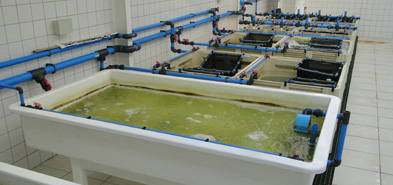 |
|
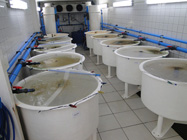
|
|
| |
|
|
|
|
|
|
| |
|
|
Bronwen Currie, , Biology, Ministry of Fisheries and Marine Resources, Henties Bay, NAMIBIA |
|
|
|
| |
|
|
Anja Van Der Plas, Marine Chemistry, National Marine Information & Research Centre, Swakopmund, NAMIBIA |
|
|
|
| |
|
|
Paulus Kainge, NatMIRC, Ministry of Fisheries and Marine Resources, Swakopmund. NAMIBIA |
|
|
|
| |
|
|
Susanne Fietz, Geochemistry, Stellenbosch University, SOUTH AFRICA |
|
|
|
| |
|
|
Sam Mafwila, SANUMARC and Dept. of Fisheries and Aquatic Sciences, UNAM, Sam Nujoma Campus, Henties Bay, NAMIBIA |
|
|
|
| |
|
|
John Compton, Geology, University of Cape Town, SOUTH AFRICA |
|
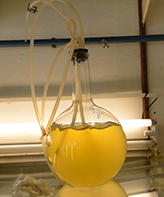 |
|
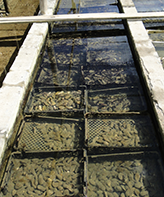 |
|
| |
|
|
Percy M. Chimwamurombe, Namibian University of Science and Technology (NUST), Dep. Natural and Applied Sciences, NAMIBIA |
|
|
|
| |
|
|
Johannes Iitembu, Ecology, Dept. of Fisheries and Aquatic Sciences, UNAM, Sam Nujoma Campus, Henties Bay, NAMIBIA |
|
|
|
| |
|
|
Sandy Thomalla, Southern Ocean Carbon and Climate Observatory, CSIR, SOUTH AFRICA |
|
|
|
| |
|
|
|
|
|
|
| |
|
|
|
|
|
|
| |
Technical Assistance
︎  |
|
Elena Bruni, PhD candidate, Dept. of Earth Sciences, ETH Zürich, SWITZERLAND
Liswaniso, Gadaffi Muhanz & Martha Hausiku, SANUMARC / UNAM, Henties Bay, NAMIBIA
Mohamed Elsafi, Oceanography Department, Alexandria University, Alexandria, EGYPT
Kaukurauee Ismael Kangueehi, Stellenbosch University, Geochemistry, SOUTH AFRICA |
|
|
|
| |
|
|
|
|
|
|
| |
|
|
|
|
|
|
| |
Workshop Coordination
︎  |
|
The Coordinating Director (CD) responds to inquiries about the RGNO and she receives Applications for participation and Reference Letters.
|
|
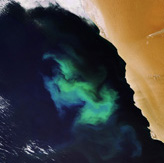 |
|
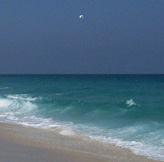 |
|
| |
|
|
Chibo Chikwililwa, Coordinating & Financial Director (CD & FD)
Sam Nujoma Campus and Marine and Coastal Resources Research Center (SANUMARC)
University of Namibia
e-mail: Chibo Chikwililwa
phone: +264 (0)81 463 6406 |
|
|
|
| |
|
|
|
|
|
|
| |
Local Transportation |
|
A local taxi service will be engaged. |
|
|
|
| |
|
|
|
|
|
|
|
|
| |
|
|
| |
|
|
|
|
|
|
|
|
| |
|
|
|
|
|
|
|
|
| |
Locations
︎  |
|
The RGNO Research Discovery Camp is based at the Sam Nujoma Campus, UNAM's regional institute for research and training in oceanography in Henties Bay, and at the National Marine Information and Research Center in Swakopmund. Samples emanating from the hydrographic sampling will be returned to these two labs for follow-up characterization. More in-depth biogeochemical studies can be performed at host institutions in the region or abroad together with visiting graduate students and scientists from the workshop. |
|
|
|
|
|
| |
|
|
Accommodations: Workshop participants will live in nearby flats in Swakopmund and later in Henties Bay, sharing rooms. Breakfast and dinner will be served in town restaurants. Bedding and towels are provided, but participants are required to supply their own toiletries. A warm sleeping bag is
recommended as a second bed cover for cold nights, since the rooms are not heated. |
|
|
|
|
|
| |
|
|
|
|
|
|
| |
|
|
Transportation from and to the place of arrival has to be requested and reserved in advance through the CCD. |
|
|
|
| |
Language
︎  |
|
English. Participants must show good command of the English language for reading, writing and following lectures and laboratory procedures. |
|
|
|
| |
|
|
|
|
|
|
|
|
| |
|
|
|
|
|
|
|
|
| |
|
|
| |
|
|
|
|
|
|
|
|
| |
|
|
|
|
|
|
|
|
| |
Costs & Scholarships
︎  |
|
The workshop fee is 9500 NAM$ or an equivalent in US$ or €. It covers accommodation (room and board) on land and at sea and local transports to the Sam Nujoma Campus from Walvis Bay airport or to and from Swakopmund or Windhoek, if necessary.
Activities on the weekends are not covered by the workshop fee. Accepted workshop participants will receive an invoice and instructions for payments from the FD
|
|
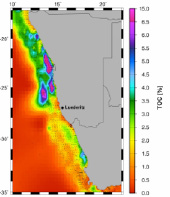 |
|
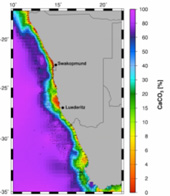 |
|
| |
|
|
|
|
|
|
| |
|
|
A limited number of fellowships is available for qualified applicants who are in training at a university in a developing African country. These will cover part or the full amount of the workshop tuition, if needed (see "Financial Support"). Incomplete or unreasonable requests cannot be considered. We ask that applicants apply for support at their home institutions first and that those who are otherwise supported by scholarships or research grants or who are employed pay the full costs through their employer or from their scholarship. |
|
|
|
| |
|
|
|
|
|
|
| |
|
|
The trainee is responsible for arranging and financing the round-trip ticket between his /her home institution and Walvis Bay (Rooikop Airport), Swakopmund, Windhoek (Hosea Kutako International Airport) or Henties Bay in Namibia, for visa applications and associated fees, insurance premiums, seafarers certificate, etc. If necessary the workshop management can help. Participants who will receive a travel scholarship through the workshop must purchase the plane ticket and first pay for the airfare by themselves; they will be reimbursed by the CFD upon arrival at the workshop site. |
|
|
|
| |
|
|
|
|
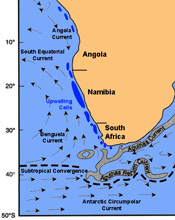 |
|
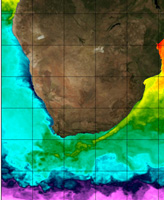 |
|
| |
|
|
Insurances: The workshop assumes no responsibility for compensation in the event of sickness, accident, death or disability of workshop participants. Each workshop participant must arrange for personal health and accident insurance valid in Namibia.
In order to be allowed on the Research Vessel, participants must produce a "Seafarers Health Certificate". Those who already have an internationally recognized one should take it with them; all others will have to go through a health check, which will be arranged locally by the CCD. |
|
|
|
| |
|
|
The RGNO cannot pay honoraria, salaries or bursaries, neither to students nor to instructors. |
|
|
|
| |
|
|
|
|
|
|
| |
|
|
|
|
|
|
| |
|
|
|
|
|
|
| |
Financial Support
︎  |
|
Limited funding to attend the RGNO Discovery Camp is available to postgraduate students and early career scientists involved in or planning to get involved in projects that relate to marine ecosystems research. It is expected that they have some practical experimental experience and a good theoretical and empirical background in their field of science. |
|
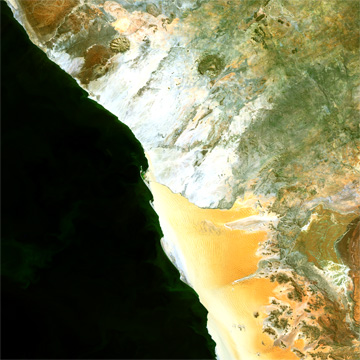 |
|
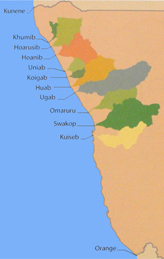 |
|
| |
|
|
|
|
|
|
| |
|
|
If you intend to apply for financial support, please complete the form "Financial Statement and Application for Support", which is attached to the Application Form, and submit it together with your application. Financial support is based on both financial need and academic merit and awarded to participants facing financial constraints. A request for aid will NOT influence the selection of an application for the RGNO workshop. Please do not fill out the "Financial Statement and Application for Support" form, if you are not applying for support.
Please contact your advisor and department head to inquire about support prior to submitting your request to the RGNO. |
|
|
|
| |
|
|
|
|
|
|
| |
|
|
|
|
|
|
|
|
| |
|
|
| |
|
|
|
|
|
|
|
|
| |
|
|
|
|
|
|
|
|
| |
Who is eligible to apply
︎  |
|
We would like to invite up to 14 open minded, motivated and passionate young scientists from SADC countries (Southern African Development Community), but also from worldwide. All students must fulfill the same criteria. We envision a 1:1 ratio of African to non-African participants. |
|
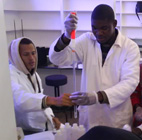 |
|
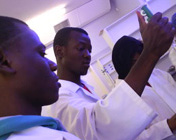 |
|
| |
|
|
|
|
|
|
| |
|
|
Early career researchers (PhD candidates and post-doctoral researchers, but also Honors M.Sc. students majoring in one of the ocean science fields and scientists holding an equivalent advanced degree) with specialization in biological, chemical, geological, physical or engineering oceanography, environmental marine ecology or in other fields related to the workshop contents are particularly encouraged to apply for this program, if they can make use of the biogeochemical and microbiological topics that are offered. |
|
|
|
| |
|
|
|
|
|
|
|
|
| |
|
|
African practitioners from research-oriented institutions, lecturers and higher level educators who submit a plan outlining how they intend to incorporate workshop contents into their practice, learning and teaching of science, technology or engineering and to share new knowledge and exchange ideas with colleagues and students are welcome to apply as well. |
|
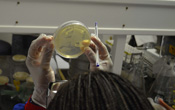 |
|
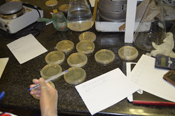 |
|
| |
|
|
|
|
|
|
| |
|
|
Applicants must either be enrolled in a science training program at an accredited university or polytechnic school or be employed as a researcher or upper level science teacher in his / her country of origin before, during, and after the workshop. |
|
|
|
| |
|
|
|
|
|
|
| |
|
|
|
|
|
|
| |
How to apply
︎  |
|
Use the forms provided, fill in the required information using Adobe Acrobat and submit all documents electronically as Adobe pdf with good resolution, preferably as attachments in one single e-mail to the CCD Chibo Chikwililwa. Please do not fill out the application forms in hand writing and do not send scanned or password-protected copies of the forms, since such forms cannot be read by the receiving software.
|
|
| |
|
|
Your application must contain:
1. Your CV (list also special skills that might promote your career). |
|
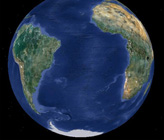 |
|
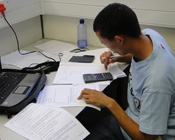 |
|
| |
|
|
2. Scanned copies of verified transcripts of your highest degree(s) reached as pdf documents sent as attachments to the application e-mail (do not send hard copies of originals, and do not send transcripts of the grades in workshops you attended) |
|
|
|
| |
|
|
3. A statement explaining your present study status or employment (1b on Application Form). |
|
|
|
| |
|
|
4. On the Application Form (section 2) a statement of interest outlining your current research, your academic career plans, your contribution to the workshop research projects based on your skills and what you hope to gain from the training offered by the RGNO Discovery Camp (1-2 pages). This information is very essential (see selection criteria). |
|
|
|
| |
Evaluation Forms |
|
5. Names and contacts of two people who have agreed to write letters of recommendation explaining your academic achievements, your career potential and your character (section 3 on the Application Form). One must come from your present research advisor / work supervisor and must also contain the approval of your present study or research institution in supporting your leave for the full duration of the Research Discovery Camp. Please forward the corresponding Evaluation Forms to the reviewers, who have agreed to evaluate your scientific potential. Recommendation letters should be sent by the evaluators before the application deadline, to the Coordinating Director (addeess given on the Evaluation Form) directly.
|
|
|
|
|
|
| |
|
|
|
|
|
|
| |
Application Forms |
|
All Application Documents, incl. Recommendation Letters and CV must be written in English. Applicants must complete the Application Forms and submit them electronically together with the other documents in pdf format to the address given on the Application Form. Please be aware that incomplete forms cannot be sent. |
|
|
|
| |
|
|
|
|
|
|
| |
|
|
If you need help or clarification please contact the Coordinating Director.
Chibo Chikwililwa, RGNO Coordinating Director,
Sam Nujoma Campus and Marine and Coastal Resources Research Center (SANUMARC)
University of Namibia
e-mail: Chibo Chikwililwa
phone: +264 (0)81 463 6406
|
|
|
|
| |
|
|
| |
|
|
|
|
|
|
|
|
| |
Deadline |
|
Application deadline is March 10, 2019 |
|
|
|
|
|
| |
|
|
|
|
|
|
|
|
| |
|
|
| |
|
|
|
|
|
|
|
|
| |
Selection of Participants
︎  |
|
Selection of participants is competitive. We would like to attract talented students and experienced instructors who can make best use of the possibilities offered by the RGNO Discovery Camp for their own research and who are willing to share their knowledge. Applicants will be chosen according to merit and their academic outlook. Special attention will be paid to the applicant's potential as a (future) scientist.
For your application please consider the following:
During the presently funded phase of the RGNO we focus on the following themes:
The roles of phytoplankton blooms in organic carbon cycling
Changes in the acid buffering capacity at the surface and at depths in highly productive marine upwelling systems
Trophic ecology in Northern Benguela Upwelling regions: The role of dominant, small copepods in carbon (mostly lipid) transfer
The role of carbon-mineral-interactions in degradation and deposition processes of land-derived and autochthonous organic matter
Ecto- and endosymbiotic bacterial associations in the Thiomargarita microbiome
The trace element pump between water column and sediment in the Benguela Upwelling Ecosystem
Responses of benthic fauna-microbe symbioses in fluctuating and disturbed sediment habitats in the Benguela Upwelling Ecosystem
Dynamic responses of pelagic and benthic ecosystems to physical forcing: Continuous observations from local mooring stations
Regulators of microbial community changes during degradation in sedimenting marine micro-aggregates across redox gradients
Potentially useable components of macro algae from the Namibian Coast for biochemicals and cosmetic or nutritional supplements
|
|
| |
|
|
Tell us in your application to which theme you want to contribute and what you intend to do. We will make every effort to accommodate your interests and your needs. There is room for alternative unique projects as well, just let us know early on and prepare well.
During the cruise the workshop has access to water and sediment samples from the shelf region between 23°S and 20°S. We would like to select participants who can best justify the need for the contents that the workshop offers and the research that they will be carrying out with the collected samples. |
|
| |
|
|
|
|
|
|
|
|
| |
|
|
Applications are evaluated based on the following criteria: |
|
| |
|
|
The contribution the workshop can make to support your research within one of the core topics.
|
|
| |
|
|
Quality of the academic achievements and / or teaching records.
|
|
| |
|
|
Curriculum of the applicant.
|
|
| |
|
|
Career objectives and evidence that the training will lead to lasting impacts on oceanography.
|
|
| |
|
|
Skills in carrying out original research and / or dedication to effective teaching.
|
|
| |
|
|
Ability to understand and write scientific reports and papers on technical issues in English.
|
|
| |
|
|
Recommendations in Reference Letters that address your abilities as listed on the Evaluation Forms.
|
|
| |
|
|
|
|
|
|
|
|
| |
|
|
The candidate might be asked to participate in an informal telephone / Skype interview to evaluate his/her command of the English language. |
|
| |
|
|
|
|
|
|
|
|
| |
|
|
Action on admission can only be taken once the application files are complete. Notification of acceptance will be made within ten (10) days of the deadline for applications. No delays in submitting are possible. Only complete applications can be processed within this short period of time. Applicants will be notified with an invitation letter sent via e-mail. Accepted candidates must confirm full participation within one week and will then receive further information regarding visa application, travel and a "health insurance memo" which needs to be signed and returned together with the confirmation of participation. |
|
| |
|
|
|
|
|
|
|
|
| |
Travel to Namibia
︎  |
|
Making travel arrangements is the responsibility of each participant. Those traveling from abroad best fly to Walvis Bay (Rooikop Airport) which is closest to the home of the workshop in Henties Bay and Swakopmund or to Windhoek (Hosea Kutako International Airport) from where they should arrange for a shuttle transport to Swakopmund through the TC. Upon request through the TC, the workshop offers pickups at Walvis Bay Airport and at the Swakopmund shuttle stop.
As a citizen of a country of origin (passport) who requires a visa to enter Namibia, you will be responsible for applying for a proper visa at the Namibian Embassy in your country of residence. If you get accepted to participate you will receive further advice and support. |
|
| |
|
|
|
|
|
|
|
|
| |
|
|
|
|
|
|
|
|
| |
Expectations
︎  |
|
Participants are required to contribute actively to the workshop contents, adhere to the study plan, critically follow lectures, familiarize themselves with the scientific literature, initiate discussions, share knowledge and experience, plan proper procedures for sampling at sea, perform reliable analyses, execute experiments, recognize problems and work towards solving them. Some papers and book chapters will become available to accepted participants on the password-protected study site. The workshop goals can best be achieved, if everybody takes responsibility in making the workshop successful for themselves and supporting others.
Participation requires time for preparation and a serious commitment to fully immerse into the program, there is no time to do other things during the workshop period.
- Accepted participants will be asked to respond to a questionnair that summarizes their experience, to read a number of scientific publications and book chapters and, if necessary, to refresh their knowledge in chemistry before the workshop.
- During a full day student symposium during the first workshop week, participants will present the work they are involved in at their home institution and outline their research topic.
- Also during week 1, participants will familiarize themselves with the research literature and the use of online research tools, select scientific papers that relate to the chosen workshop research theme, formulate project ideas and begin to set up experiments that might solve them.
- During week 2 groups of students will participate in 1- to 2-day cruises on the R/V MIRABILIS for the collection of samples from the water column and from sediments along the Namibian shelf.
- During the following 10 days participants will execute analyses and perform experiments and get ready to report on progress made at sea and in the lab.
- Following the RGNO workshop, a "Science Discovery Week" is being planned in collaboration with MEEO, the Namibian Marine Environmental Education & Outreach Program. Depending on interest, the RGNO workshop regularly hosts the Bachelor Students from the Henties Bay campus and possibly students or Science Teachers from nearby High Schools on a school-free day for a "Science Discovery Day".
- During the last week of the RGNO cpurse, the preliminary research data will be written up, integrated into a research proposal and a poster and prepared for an oral presentation at the Open Symposium at Nat MIRC in Swakopmund.
|
|
| |
|
|
|
|
|
|
|
|
| |
|
|
|
|
|
|
|
|
| |
Assessment of Outcome
︎  |
|
Participants, who successfully attended and finished the full program will receive a cover letter (certificate of attendance) and the list of contents covered during the workshop (Study Program). Although the RGNO does not officially credit the work done during the Research Discovery Camp, participants are encouraged to apply for credits at their home institution preferably before the workshop. It is recommended that the workshop be credited according to the rules applicable at the student's home institution. |
|
Upon request from the crediting office, the workshop organizers can give further comments on the performance of the participant and offer an opinion as to the credit value of the program.
The workshop needs to be evaluated as well. Towards the end, participants will be asked to comment in testimonials on the usefulness of the workshop contents for their career, for preparing research grant applications, scientific reports and lectures. This will help to constantly improve the RGNO workshops and adapt contents to interests and needs.
Here is a list of questions we will ask you to address. |
|
| |
|
|
|
|
|
|
|
|
| |
|
|
|
|
|
|
|
|
| |
Workshop Study Site
︎  |
|
Workshop organization, study plans, addresses of the teaching team members, publications and methodological protocols will become available via a password-protected study management site (on OLAT*).
The site also contains a reminder of the workshop work ethics and a "Knowledge Assessment" questionnaire, in which you judge your abilities, your experience and your knowledge before the workshop. It will help the organizers in preparing according to the needs of the participants and it will give participants an opportunity to evaluate their progress. |
|
Access rights to the study site will be sent to accepted workshop participants a week before the start of the Research Discovery Camp.
After the workshop, the study program and details about certain workshop events will be made available to a broader interest group via the section "Impressions from Past Workshops, Testimonials and Reports".
(* OLAT is the open source, online learning and training platform of the University of Zürich.)
|
|
| |
|
|
|
|
|
|
|
|
| |
|
|
|
|
|
|
|
|
| |
Important Dates
︎  |
|
Pre-Workshop Period 2018
01 December: Website is operational
01 December: Application period opens
01 December: Workshop posters distributed
2019
10 March: Application period ends
20 March: Participants selected and informed
26 March: Participants accepted, registration complete
26 March: Health & Emergency Information complete
14 April: Pick-up requests complete
15 April: Enrolment in study website for preparation starts
28 April: Participants arrive in Swakopmund
|
|
Workshop Period: April - May, 2019
28 April: Participants arrive in Swakopmund
28 April: RGNO workshop starts; evening get-together
29 April: RGNO Introductory Benguela Symposium
04 May: Student & Alumni Forum
06 May: Cruise leg 1, from Walvis Bay along S23 North
09 May: Cruise leg 2, from Walvis Bay along S20 South
12 May: Cruises end. All sample preserved. Experiments ready to start.
14 May: Ocean Highlights Symposium
17 May: Excursions: Desalination Plant, Oyster Hatchery, Salt Factory
22 May: Presentation of Results at the Open Symposium, NatMIRC Swakopmund
23 May: Proposals and Posters submitted to the corresponding folders in OLAT
23 May: Clean-up day, Graduation, end of RGNO workshop 2019
24 May: Departure from Henties Bay and Swakopmund
Post-Workshop Period:
27 May: All testimonials submitted to the CCD.
|
|
| |
|
|
|
|
|
|
|
|
| |
|
|
| |
|
|
|
|
|
|
|
|
| |
Impressions from
Past Workshops,
Testimonials and Reports
︎  |
|
Read here about past workshops: what we studied, who the students and staff were, what interests they had, the research proposals which they submitted and which they presented at the Open Symposium and what they had to say about their RGNO workshop. |
|
|
|
|
|
| |
|
|
|
|
|
|
|
|
| |
|
|
|
|
|
|
|
|
| |
|
|
|
|
|
|
|
|
| |
Regional Graduate Network
in Oceanography
RGNO
︎  |
|
Within the next few years, RGNO, in collaboration with the Sam Nujoma Campus and SANUMARC and with the National Marine Information and Research Center (Nat MIRC) of the MFMR, will offer annually a Research Discovery Camp in Oceanography for Southern Africa. The concept is based on SCOR's Bellagio Recommendations. The topics are related to key themes in "Biogeochemical Oceanography in Upwelling Ecosystems" and to the sustainable use and management of marine upwelling ecosystems and their resources. |
|
Research teams and students from the RGNO aim to collaborate with individuals and organizations that sponsor access to advanced research facilities with expert guidance for analyses, experimentation, ocean observation and data processing. Alumni of the RGNO are expected to later help train marine scientists in their field of expertise and experience at their institution and within the RGNO. The development of the initiative, the research contents and the contribution of the chosen themes to research and capacity building in the region are described in the RGNO Mission Statements.
|
|
| |
|
|
|
|
|
|
|
|
| |
|
|
| |
|
|
|
|
|
|
|
|
| |
|
|
|
|
|
|
|
|
| |
Other Things to do in Namibia
︎  |
|
Besides having an ocean ecosystem driven by upwelling, Namibia offers many more scientifically interesting phenomena. The slides shown above and the many pictures of this web site illustrate the multitude of features that can be observed and studied before or after the RGNO Discovery Camp.
Many are attractive for geologists, e.g. Brandberg, a huge cretaceous plutonic rock formation that rises out of the Namib Desert and can be seen on pictures taken by satellites, the flat Etosha sedimentary basin in the North, the deep and over long stretches dry Fish River Canyon in the South, active dunes in the Namib Desert all along the Atlantic Ocean between Swakopmund and Lüderitz, ancient stromatolite fossils, sites with Archean and Proterozoic rocks, ephemeral Kuiseb River floods, and many more. |
|
In the vicinity of the Sam Nujoma Campus one finds calcite and gypsum duricrusts - calcretes and gypcretes. In the Omaruru riverbed, sandy sediment outcrops illustrate regression and transgressions of the ocean and coastal solar evaporation ponds and mud pans with colorful archaeal and bacterial blooms give impressions of microbial life under extremely saline conditions.
Plant biologists might be interested in studying adaptations of plants to arid environments and the colonization of sand flats by lichens. Astronomers get views into space from desert sites undisturbed by light pollution at night and photographers find lots of opportunities to "hunt" for wild animals and wait for spectacular sunsets on the beaches. There is much to discover in Namibia by just keeping your eyes open for "natural art".
|
|
| |
|
|
|
|
|
|
|
|
| |
|
|
A movie in 3 parts is available on the Namibian Coast Conservation and Management (NACOMA) website. It gives an informative insight into Namibia's land-ocean interactions.
Movie part 1
Movie part 2
Movie part 3
Don't miss the large selection of short videos about Namibia, which you will find in the right navigator in YouTube, if you click on any of the above mentioned videos.
|
|
The movies explain the causes for the richness of fish and the diversity of organisms in the ocean food chain, and they elute to the many environmental extremes that make the delicate ecosystems susceptible to a globally changing environment, like sea level rises and coastal erosion. They also remind us of the consequences, if these ecosystems are overused by fishing and industrial operations, by tourism, settlements and other human-induced activities.
Namibia's desert coast stretches over 1570 km from the Orange river - the border with South Africa in the south - to the Kuenen River in the north which forms the border to Angola for a short stretch.
|
|
| |
|
|
|
|
|
|
|
|
| |
|
|
| |
|
|
|
|
|
|
|
|
| |
Marine Education & Outreach - MEEO
︎  |
|
Training workshop for Science Teachers
Together with MFMR's (Ministry of Fisheries and Marine Resources) National Marine Information and Research Center (Nat MIRC) in Swakopmund and UNAM's SANUMARC in Henties Bay, the RGNO and MEEO (Marine Environmental Education & Outreach) are offering a 1-week training workshop for upper grade High School Science Teachers (Life Sciences and Physical Sciences).
|
|
Location: Aquarium of Nat MIRC in Swakopmund
Time: May 26 to May 31, 2019
Information: Download the poster
Application: Download the application form, fill in the requested information and submit it to the address given on the form before April 30. |
|
| |
|
|
Detailed Program:
By clicking on the green arrow, you can have a look at the program of the most recent MEEO Science Teachers workshop.
 |
|
| |
|
|
|
|
|
|
|
|
| |
|
|
| |
|
|
|
|
|
|
|
|
| |
|
|
|
|
|
|
|
|
| |
Sponsors |
|
The RGNO Research Dscovery Camps are supported and sponsored by the following national and international institutions: |
|
| |
|
|
|
|
|
|
|
|
| |
|
|
 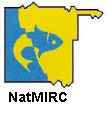   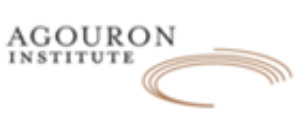 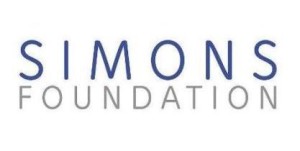
   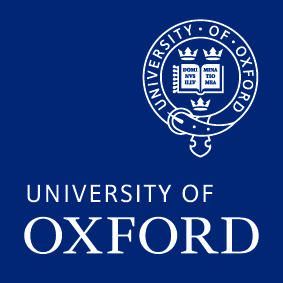 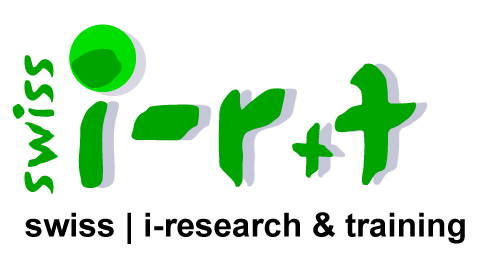 |
|
| |
|
|
|
|
|
|
|
|
| |
|
|
|
|
|
|
|
|
| |
︎  |
|
|
|
|
|
|
|
| |
|
|
|
|
|
|
|
|
| |
Yes, we care about changes on Earth and would like to understand why and how they happen.
"The Story of Earth" (National Geographic) and "Earth from Space" (NOVA)
Discovery News on OCEANS |
|
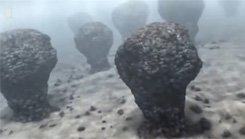 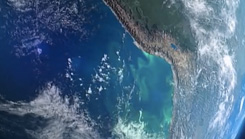 
|
|
| |
|
|
|
|
| |
|
|
|
|
|
|
|
|
| |
|
|
Comments regarding errors or discrepancies in this website should be addressed to Kurt Hanselmann |
|
| |
|
|
|
|
|
|
|
|
| |
|
|
| |
|
|
|
|
|
|
|
|
| |
|
|
|
|
|
|
|
|
| |
Participants of the 2019 RGNO Workshop (left: May 17 visiting the Seawater Desalination Plant, right: May 22 Participants at Results Symposium) |
|
| |
|
|
|
|
|
|
|
|
| |
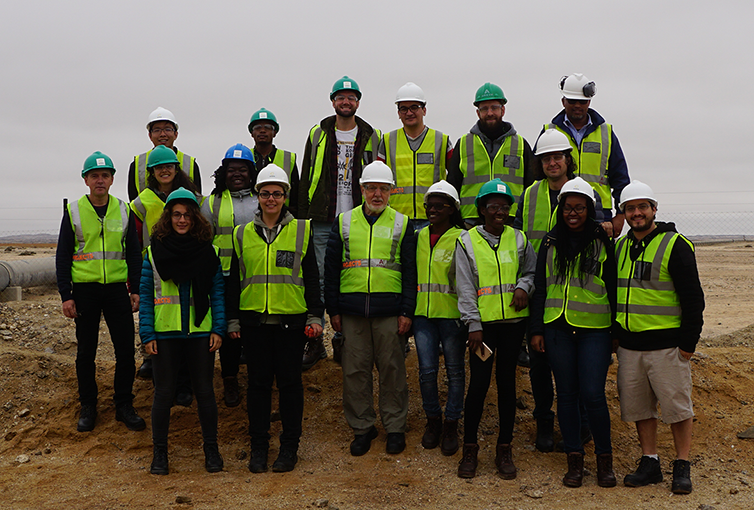 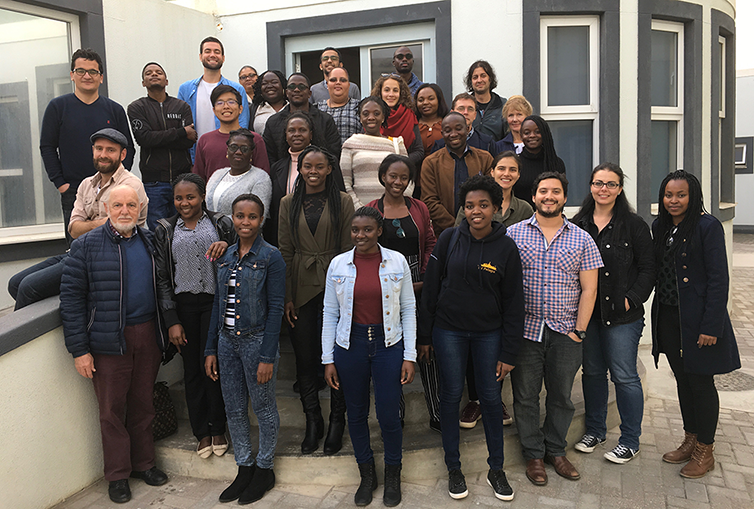 |
|
| |
|
|
|
|
|
|
|
|
| |
|
|
|
|
|
|
|
|
| |
Participants, some Instructors and Crew Members of the 2018 RGNO Workshop (April 26) |
|
|
|
| |
|
|
|
|
|
|
|
|
| |
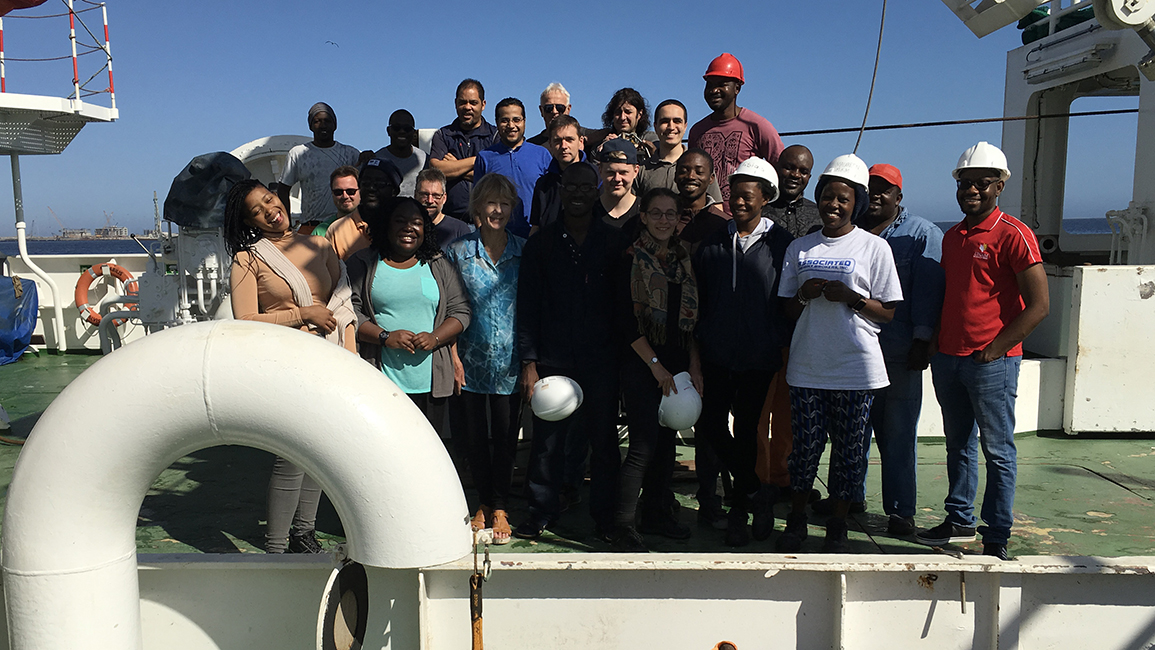 |
|
| |
|
|
|
|
|
|
|
|
| |
|
|
|
|
|
|
|
|
| |
Participants of the 2017 RGNO Workshop (May 5th) |
|
|
|
|
|
| |
|
|
|
|
|
|
|
|
| |
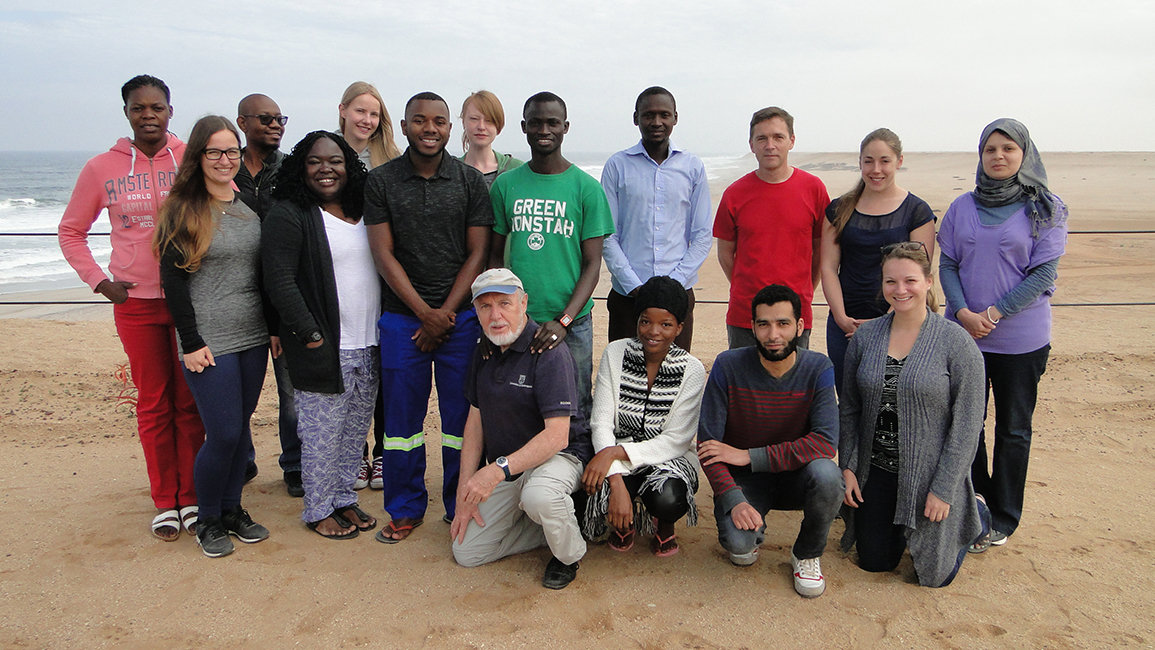 |
|
| |
|
|
|
|
|
|
|
|
| |
back row, left to right |
|
Nancy Odour, Kenya; Greg Limbo Mbaimbai, Namibia; Barbara Lesniak, Poland; Anastasiia Ignatova, Russia; Amidou Sonko, Senegal; Volker Mohrholz (Instructor), Germany; Natalie Hicks, UK; Marwa Baloza, Egypt; |
|
| |
middle row, left to right |
|
Nicola Krake, Germany; Chibo Chikwililwa (Instructor) Namibia; Bartholomeus Tjandja, Namibia; Ibrahima Diack, Senegal; |
|
| |
front row, left to right |
|
Kurt Hanselmann (Instructor), Switzerland; Eugenia Kwahanangadu Paulus, Namibia; Essam Khamis Adel Moniem El-Shorbagi, Egypt; Lauren Gillies, USA. |
|
| |
|
|
|
|
|
|
|
|
| |
|
|
|
|
|
|
|
|
| |
|
|
|
|
|
|
|
|
| |
|
|
|
|
|
|
|
|
| |
|
|
|
|
|
|
|
|
| |
|
|
|
|
|
|
|
|
| |
|
|
|
|
|
|
|
|
| |
|
|
|
|
|
|
|
|
| |
|
|
|
|
|
|
|
|
| |
|
|
|
|
|
|
|
|
| |
|
|
|
|
|
|
|
|
| |
|
|
|
|
|
|
|
|
| |
|
|
|
|
|
|
|
|
| |
|
|
|
|
|
|
|
|
| |
|
|
|
|
|
|
|
|
| |
|
|
|
|
|
|
|
|
| |
|
|
|
|
|
|
|
|
| |
|
|
|
|
|
|
|
|
| |
|
|
|
|
|
|
|
|
| |
|
|
|
|
|
|
|
|
| |
|
|
|
|
|
|
|
|
| |
|
|
|
|
|
|
|
|
| |
|
|
|
|
|
|
|
|
| |
|
|
|
|
|
|
|
|
| |
|
|
|
|
|
|
|
|
| |
|
|
|
|
|
|
|
|
| |
|
|
|
|
|
|
|
|
| |
|
|
|
|
|
|
|
|
| |
|
|
|
|
|
|
|
|
| |
|
|
|
|
|
|
|
|
| |
|
|
|
|
|
|
|
|
| |
|
|
|
|
|
|
|
|
| |
|
|
|
|
|
|
|
|
| |
|
|
|
|
|
|
|
|
| |
|
|
|
|
|
|
|
|
| |
|
|
|
|
|
|
|
|
| |
|
|
|
|
|
|
|
|
| |
|
|
|
|
|
|
|
|
| |
|
|
|
|
|
|
|
|
| |
|
|
|
|
|
|
|
|
| |
|
|
|
|
|
|
|
|
| |
|
|
|
|
|
|
|
|
| |
|
|
|
|
|
|
|
|
| |
|
|
|
|
|
|
|
|
| |
|
|
|
|
|
|
|
|
| |
|
|
|
|
|
|
|
|
| |
|
|
|
|
|
|
|
|
| |
|
|
|
|
|
|
|
|
| |
|
|
|
|
|
|
|
|
| |
|
|
|
|
|
|
|
|
| |
|
|
|
|
|
|
|
|
| |
|
|
|
|
|
|
|
|
| |
|
|
|
|
|
|
|
|
| |
|
|
|
|
|
|
|
|
| |
|
|
|
|
|
|
|
|
| |
|
|
|
|
|
|
|
|
| |
|
|
|
|
|
|
|
|
| |
|
|
|
|
|
|
|
|
| |
|
|
|
|
|
|
|
|
| |
|
|
|
|
|
|
|
|
| |
|
|
|
|
|
|
|
|
| |
|
|
|
|
|
|
|
|
| |
|
|
|
|
|
|
|
|
| |
|
|
|
|
|
|
|
|
| |
Besucherstatistiken online
|
|
| |
|
|
|
|
|
|
|
|





.jpg)
